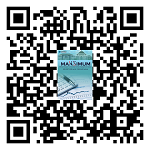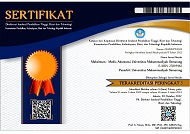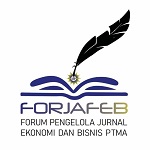Analysis of the Influence of Diamond Fraud, Integrity, and Religiosity on Academic Fraud Behavior
(1) Universitas Islam Sultan Agung
(2) Universitas Islam Sultan Agung
(*) Corresponding Author
Abstract
This study aims to determine the effect of pressure, opportunity, rationalization, capability, integrity, and religiosity on academic cheating behaviour in undergraduate accounting students from Islamic-based universities in Semarang. This research is included in the comparative causal research. The population of this study was undergraduate accounting students from Islamic-based universities in the city of Semarang, namely Universitas Islam Sultan Agung, Muhammadiyah University, Wahid Hasyim University, and UIN Walisongo Semarang. The sampling technique used was purposive sampling. The sample used in this study was 60 students. The data analysis techniques used are descriptive statistics, data quality test, classical assumption test, multiple linear regression analysis, model goodness test, and individual parameter significance test. Pressure has been proven to positively and significantly affect the academic cheating behaviour of accounting students from Islamic-based universities in Semarang. Pressure is proven to have a positive and significant effect. Opportunity is proven to have a positive and significant effect. Rationalization is proven to have a positive and significant effect. Ability is not proven to have a significant effect. Integrity has yet to be proven to have a significant effect. This means that high integrity does not influence students to suppress academic cheating behaviour. Religiosity has not been proven to significantly affect the academic cheating behaviour of accounting students at Islamic-based colleges in Semarang City. This means that high religiosity does not influence students to suppress academic cheating behaviour.
Keywords
Full Text:
PDFReferences
Aditiawati, T. (2018). Accounting Students' Academic Fraud Behavior: Diamond Fraud Dimensions (Case Study of Accounting Study Program Students at the Islamic University of Indonesia).
Ainii, Aufaa Affifah (2020). The Influence of Market Orientation, Learning Orientation, and Entrepreneurial Orientation on Marketing Performance through Competitive Advantage (Study of MSMEs in the Hands Up Business Community (Tda) Tangerang Raya). Thesis. Semarang State University.
Ali, I. (2010, April 8). Burying the Culture of Cheating. Retrieved from pesantrenalirsyad.org: https://pesantrenalirsyad.org/mengembu-kultur-nyontek/
Avortri, C. and Agbanyo, R. (2020), Determinants of management fraud in the banking sector of Ghana: the perspective of the diamond fraud theory, Journal of Financial Crime, Vol. 28 No. 1, pp. 142-155. https://doi.org/10.1108/JFC-06-2020-0102.
Demetriades, P. and Owusu-Agyei, S. (2022), Fraudulent financial reporting: an application of fraud diamond to Toshiba's accounting scandal, Journal of Financial Crime, Vol. 29 No. 2, pp. 729-763. https://doi.org/10.1108/JFC-05-2021-0108
Dewi, IG, & Pertama, IG (2020). Diamond Fraud and its Impact. Scientific Journal of Accounting and Business.
Dristianto, A., & Rodhiyah, R. (2016). The Influence of Intellectual Capital on Sales Performance through Product Innovation as an Intervening Variable in Small and Medium Enterprises in Lasem Batik, Rembang Regency. Journal of Business Administration, 5(4), 245–254.
Endiana, IDM, & Sudiartana, IM (2016). The Influence of Understanding and Implementing Accounting Information Systems on Individual Performance and Silversmith MSME Performance I. Journal of Accounting Research, 6(1), 101983.
Gultom, SA, & Safrida, E. (2020). Analysis of the Influence of Fraud Diamond and GoneTheory on Academic Fraud (Case Study of Accounting Students from North Sumatra). EXIST Journal.
Hardiani, 2019. Factors that influence the application of information technology. (Empirical Study on Food and Beverage SMEs in Yogyakarta). Indonesian Islamic University, Yogyakarta
Hasanah, U. (nd). Implementation of Non Financial Performance as a strategy to face MEA in MSMEs. 453–459.
Jawas, Y.b. (n.d.). Strong Believers are Better and More Loved by Allah Subhanahu Wa Ta'ala. Retrieved from almanhaj.or.id: https://almanhaj.or.id/12492-mukmin-yang-kuat-besar-baik-dan-besar-dicintai-oleh-allah-subhanahu-wa-taala-2.html
Juilaika, Siti. (2016) Analysis of the Influence of Financial Aspect, Human Capital, and Innovation Capital on the Performance of Micro, Small and Medium Enterprises (UMKM) Using the Partial Least Square (PLS) Method (Case Study of MSMEs in the South Tangerang Region). Syarif Hidayatullah State Islamic University. Jakarta.
kemenag.go.id:https://sumsel.kemenag.go.id/files/sumsel/file/document/rightsreligiosity.pdf
Khamainy, AH, Ali, M. and Setiawan, MA (2022), Detecting financial statement fraud through new fraud diamond model: the case of Indonesia, Journal of Financial Crime, Vol. 29 No. 3, pp. 925-941. https://doi.org/10.1108/JFC-06-2021-0118
Kilimis, Zou, Lehmann, Et All. 2019. A Survey on Digitalization for SMEs in Brandenburg, Germany. IFAC PapersOnLine. 2140–2145
Kusuma, MF (2018). Factors that Influence Students to Commit Academic Fraud from the Perspective of Fraud Diamond and Religiosity (Study of Accounting Students at the Islamic University of Indonesia).
Lanang, IPES, Kirya, IK, & Cipta, IW (2014). Analysis of Factors That Influence the Performance of Micro, Small and Medium Enterprises (MSMEs) in Bangli Regency. E-Journal Bisma Ganesha University of Education, 2(1), 11–21.
Maisur & Umar, 2019. The Effect of Implementing an Accounting Information System on Managerial Performance (Case Study of Small and Medium Enterprises (SMEs) in Pidie Regency). JRR, Vol I, No I, June 2019, ISSN: 2685-1024
Marbun, G., & Saragih, AE (2018). The Influence of Intellectual Capital on Company Performance in Banking Companies Listed on the IDX. Encyclopedia of Knowledge Management, 4(1), 39–60.
Mauliansyah, TIR, & Saputra, M. (2020). The Effect of Implementing an Accounting Information System (AIS) on Company Performance (Empirical Study of MSMEs in Banda Aceh City). Scientific Journal of Accounting Economics Students, 4(4), 602–612.
Mohamad, A. (2012, August 31). Hundreds of Harvard students were caught cheating on final exams. Retrieved August 27, 2020, from merdeka.com: https://m.merdeka.com/dunia/ratusan-mahasiswa-harvard-ketahuan-menyontek-saat-ujian-akhir.html
Mulyadi, CF, Diana, N., & Mawardi, MC (2021). The Influence of Learning Motivation, Misuse of Information Technology and Student Integrity on the Academic Fraudulent Behavior of Accounting Students as Prospective Accountants (Case Study of Accounting Students at the Islamic University of Malang).
Murdiansyah, I., Sudarma, M., & Nurkholis. (2017). The Influence of Diamond Fraud Dimensions on Academic Fraud Behavior (Empirical Study on Master of Accounting Students, Brawijaya University). Journal of Actual Accounting, Vol. 4, no. June 2, 2017, p. 121-133.
Nasrullah, N. (2021, March 8). 10 Verses of the Koran that Forbid Hiding the Truth. Retrieved from republica.co.id: https://www.republika.
Ningsi, E. H. (2018). The Influence of Information Technology, Integrity, and Self-Confidence on Academic Cheating Behavior (Study of Stie Eka Prasetya Accounting Students).
Ningsih, HT, & Simbolon, AO (2019). The Influence of Misuse of Information Technology and Student Integrity on the Academic Fraudulent Behavior of Accounting Students as Prospective Accountants (Case Study of Accounting Students at a Private Islamic University in Medan City). Journal of Multiparadigm Accounting Research (JRAM) Vol.6, No.2.
Nugraha, P.C., Susilo, H., & Aini, E.K. (2018). The Influence of Human Capital on Company Performance (Study of Malang Advertising and Advertising Companies Registered with the Malang Advertising and Advertising Association). Business Administration (JAB), 57(2), 180–189.
Nurhikmah, Djauhar (2018), The Influence of Accounting Information Systems on Company Performance in Micro, Small and Medium Enterprises (MSMEs) in Pekalongan City. 4(1), 64–75.
Nursalikah, A. (2020, July 18). Pray diligently, commit sins diligently, what is the view of religion? Retrieved from republica.co.id: https://www.
Oktavian, IT (2019). Enterprise Architecture with the TOGAF Approach for Digital Transformation in MSMEs. TIARSIE Journal, 16(1), 23.
Ozcelik, H. (2020), An Analysis of Fraudulent Financial Reporting Using the Fraud Diamond Theory Perspective: An Empirical Study on the Manufacturing Sector Companies Listed on the Borsa Istanbul, Contemporary Issues in Audit Management and Forensic Accounting (Contemporary Studies in Economic and Financial Analysis, Vol. 102), Emerald Publishing Limited, Leeds, pp. 131-153. https://doi.org/10.1108/S1569-375920200000102012
Pramadiba, IM (2020, July 20). 700 South Korean University Students Cheated on Online Exams. Retrieved August 27, 2020, from dunia.tempo.co: https://dunia.tempo.co/read/1367291/700-mahasiswa-universitas-korea-selatan-nyontek-saat-ujian-online/full&view=ok
Putri, PAY, & Endiana, IDM (2020). Internal Control of Company Performance. KRISNA Journal: Accounting Research Collection, 11(2), 179–189.
Ratmono, D., & Frendy. (2022). Examining the fraud diamond theory through ethical culture variables: A study of regional development banks in Indonesia. Cogent Business & Management, 9(1). https://doi.org/10.1080/23311975.2022.2117161
republica.co.id/berita/qdmxxo366/rajin-solat-rajin-maksiat-how-tangan-agama
Respatiningsih, H. (2019). Performance Management of Micro, Small and Medium Enterprises (MSMEs). Journal of Management and Business, 15(2), 53.
Ridhayana, R., Ansar, R., & Mahdi, SA (2018). The Influence of the Fraud Triangle and the Level of Religiosity on Academic Fraud Behavior (Study on Khairun University Undergraduate Students). Journal of Accounting Research, Volume 5, Number 2, Pages 112-121.
Sari, NP (2020). The Influence of Intellectual Capital on Business Performance in SMEs in Sidoarjo Regency (Empirical Study of SMEs in the Industrial Sector) Nurul Puspita Sari Department of Accounting, Faculty of Economics, Surabaya State University, IndonesiaSIA. Unesa Accounting Journal, 8(3), 1–8.
Sinaga, M., & Dewi, R. (2016). Journal of Accounting and Finance Vol. 5 No. 2 October 2016 FE Budi Luhur University ISSN: 2252 7141. Journal of Accounting and Finance, 5(2), 180–199.
Srirejeki, K. (2016). Analysis of the Benefits of Social Media in Empowering Micro, Small and Medium Enterprises (MSMEs). Analysis of the Use of Social Media to Empower Small Micro Medium Enterprises (SMEs). Journal of the Telematics and Information Society, 7(1), 57–68.
Suryani, A. (2017). Financial Performance Analysis of the Swakerta Civil Servant Cooperative (KPN) at the Jambi Province UMKM Cooperative Service. Batanghari University Jambi Scientific Journal, 17(3), 27–37.
Syarifah, I., Mawardi, MK, & Iqbal, M. (2020). The influence of human capital on market orientation and MSME performance. Journal of Economics and Business, 23(1), 69–96.
Thontowi, A. (n.d.). The Nature of Religiosity. Taken back from South Sumatra.
Tuanakotta, T.M. (2014). Forensic Accounting & Investigative Auditing. Jakarta: Salemba Empat.
Tuasikal, MM (2014, May 27). Praying diligently but still committing sins. Retrieved from rumaysho.com: https://rumaysho.com/7691-rajin-shalat-namun-masih-bermaksiat.htmlAlimudin, A., Falani, AZ, Mudjanarko, SW, & Limantara, AD (2019). Analysis of the Effect of Implementing a Balanced Scorecard Perspective on Improving MSME Performance. Ekonika: Kadiri University Economic Journal, 4(1), 1.
Tuasikal, MM (2020, June 23). Arbain Hadith #39: Accidentally, Forgetting, Being Forced Means Not Being Affected by Sin. Retrieved from rumaysho.com: https://rumaysho.com/25032-hadits-arbain-39-tidak-sengaja-lupa-dipaksa-means-not-terkena-dosa.html
Tuasikal, MM (2021, July 30). The Sin of Cheating on Exams. Retrieved from muslim.or.id: https://muslim.or.id/21120-dosa-menyontek-saat-ujian.
Understanding Primary Data & its Difference from Secondary Data. (2021, June 30). Retrieved August 27, 2021, from info.populix.co: https://www.info.populix.co/post/data-primer-is
Wahyudiati, D. (2017). The Influence of Financial Aspects and Human Resources (HR) Competencies on Micro, Small and Medium Enterprises (MSMEs) in Kasongan Village. 1–136. Yogyakarta State University
Wahyuni, T., Marsdenia, M., & Soenarto, I. (2018). Analysis of the Effect of Implementing an Accounting Information System on Measuring the Performance of MSMEs in the Depok Area. Indonesian Vocational Journal, 4(2).
Article Metrics
Abstract view : 258 timesPDF - 4 times
DOI: https://doi.org/10.26714/mki.14.2.2024.171-186
Refbacks
- There are currently no refbacks.
-----------------------------------------------------------------------------------------------------------------------------------------------------------------------------------
 | MAKSIMUM: Media Akuntansi Universitas Muhammadiyah Semarang |
![]()
Maksimum: Media Akuntansi Universitas Muhammadiyah Semarang is licensed under a Creative Commons Attribution Attribution-NonCommercial-NoDerivatives 4.0 International License.

















